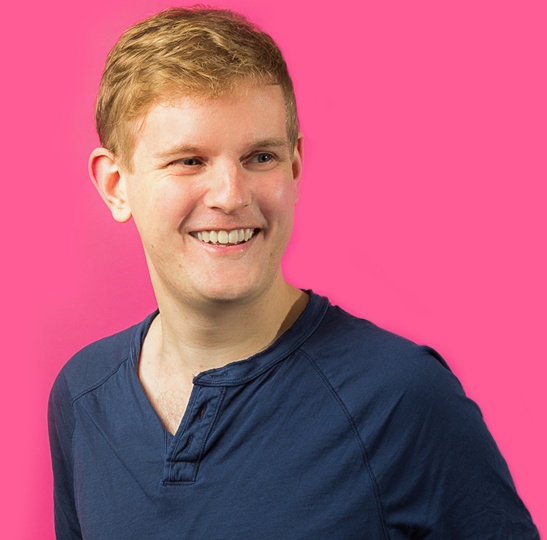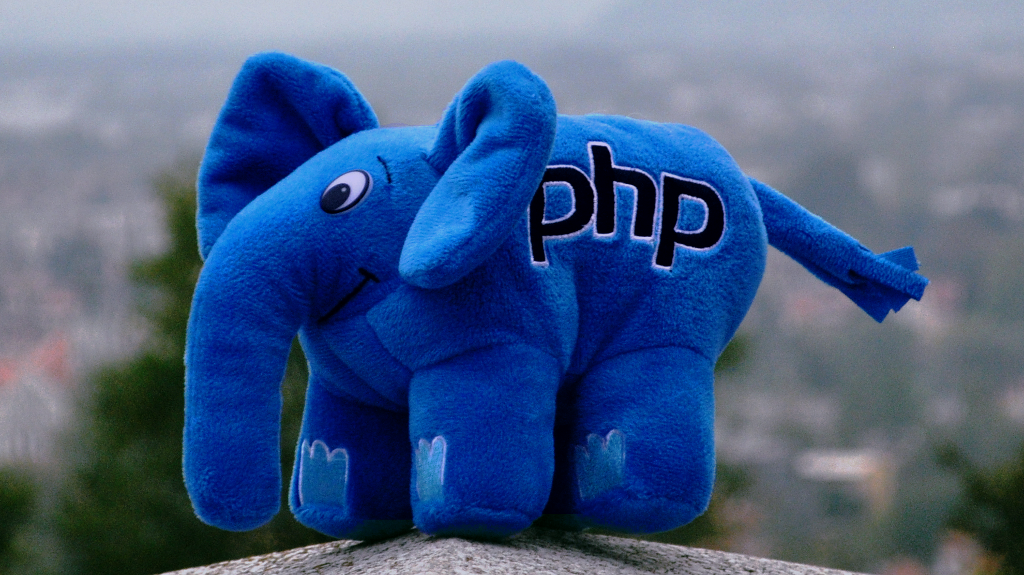How We Interview

We're meeting lots of great people as we grow our team. But we know that interviewing can be an intimidating process, so we wanted to shed some light on how we interview and what we look for.
We’ve written this blog in the hopes of making the process feel a little less scary. We’re also sharing some tips and tricks to help you ace any interview and find your dream role (which we hope is with us!).
Fundamentals
At its heart, our interview process is about one thing and one thing only: you.
We want to set you up to succeed and help you show off the best version of yourself.
We're not picking frameworks, libraries or the hottest new technology. We don't expect to go through a checkbox exercise of "features" that you have. We love that everyone is different; what we're trying to identify in our interview process is how you'll fit in our team and help our business.
We're currently in a stage of very exciting, very rapid growth. Our challenge is to figure out how to build a successful team - made up of people like you.
Two top tips
Before we get into the interview process, we wanted to highlight two key points to remember.
Mention Me is a scale up
First and foremost, find out more about who we are and what we do. Look beyond the fact we’re a referral marketing platform and dig a little deeper. What sort of company are we?
We're ~120 people (at time of writing) and we're growing fast.
This environment might not be for everyone, and that's ok. But we hope that this could be the place for you.
There's oodles of opportunity for growth, and we've got an unwritten and exciting journey ahead of us.
Have a look at how we talk about our product, our technology, our customers and our other team. Does this look like the sort of place you'd love to work at?
Questions, questions, questions
We love questions!
We’ll get plenty of opportunities to ask you questions, but it's just as important that you get to know us.
Ask us about the things that are important to you. You can even ask the same questions to different people at different stages - we’ve all got our own perspectives.
If you're successful in your application (🤞), we're going to be working together for a long time. We're excited about building a relationship with you and welcoming you into our team.
We hope this blog teaches you a bit more about us, but do we stack up to our writing?
(By the way, if you're reading this blog, mention it in your interview. It means a lot that you've taken the time to get to know us.)
Oh, and one more tip: write your questions down beforehand. Interviews can be hard work, and it's easy to forget all your questions while we ask ours.
Our interview
Ok, let's jump into the interview. What's it going to be like?
We break it up into 3 sections:
- A screening call with someone from our Recruitment team (~30 minutes)
- An introductory interview with one of our Hiring Managers (~30-45 minutes)
- A final interview based on a take-home task with our Hiring team (a Manager and an Engineer) (~2 hours)
We’ll sometimes schedule another call to dive into specific subjects we didn't get time to cover, or if we want to get another opinion on how you’d fit in the team. We try hard to keep it succinct though - we know interviews can be draining and time consuming.
Each call will be different based on the job description or the seniority of the role, but they all follow the same model.
Let us elaborate:
Screening call
This is the first step. Our Recruitment team will reach out to you to book you in.
They’ll want to get to know you, find out what you're looking for, and cover off some of the basics (such as your current position, why you're looking for a change, and your notice period). Cultural fit is important too - we want to see how you'll fit with our team of Mentioneers.
Tip: Remember, our Recruitment team won't be as technical as you are. Verbal and written communication skills with a non-technical person are highly important for all roles. Find a non-technical friend or family member to practise with. If you feel confident explaining what you're good at to them, you’ll feel confident explaining it to us 😀
Introductory call
If our recruiters give the thumbs up, you'll move on to meeting one of our Hiring Managers.
We’ll keep this call to around 30-45 minutes. We're looking to get a high-level overview of you: what you're good at, what your ideal next role looks like, and where you're looking to develop.
Tip: Remember, this interview is all about you - not your team, your colleagues or your previous company. We want to find out about what you've done. We love talking about difficult learning experiences, challenges you've overcome or accomplishments you're particularly proud of.
We'll guide you through the interview, and we encourage you to ask if anything is unclear. We certainly won't try to trick you or catch you off guard - we're just trying to get to know you better.
We may ask a technical question or two, but mostly we're looking to understand your technical experiences.
And in this round, we're Engineers - so we welcome technical conversation, but remember we're more interested in you than the lines of code you wrote.
Final interview
In our final round, we're trying to figure out one key thing: will we work well together?
We break this down into two sections.
First, we'll either give you a problem we've previously worked on, one we’re working on at the moment, or one that closely resembles a real Mention Me problem.
Sometimes we do this with a take-home exercise we'd like you to prepare for, whereas in other cases we’ll work on a problem together in the interview.
We're not doing whiteboard algorithms or anything like that (we'd Google that!) - we're looking to solve real Mention Me problems like we do in our day-to-day jobs.
We've been working on the Mention Me platform for years, and we still don't know all the answers, so we're not expecting you to "finish" Mention Me or know every nuance. Far from it!
There’s no "right" answer. We're looking to understand how you’d tackle a challenge, why you'd take the approach you did, and what you'd do about any unknowns.
Tip: We love to hear "I don't know". We don't know everything, and we don't expect you to either. We might challenge you to guess, but this isn't a maths test with a right or wrong answer. You can ask us questions (we'd love that) and we might ask you to walk through your thoughts. Maybe there's something we know that we can help you with.
And last but not least, we spend more time getting to know you.
We want to find out about how you work, what you like and don't like, and what you'd need from us to develop.
We're curious how you think good Engineering teams work, and how they work with other disciplines. What have you seen succeed? What have you seen fail? What have you learned along the way?
We’ll ask about times in your career that you're proud of, and those you wish you'd approached differently.
Just remember: we're not trying to catch you out. Tell us the good stuff. The bad stuff. The wins and the errors. We've got a mix of both under our belt too.
Ultimately, we're looking to work with you for years to come, so we want to know what that’ll be like.
The Tech
For a tech company, it might seem a little odd to leave the technology section at the end of this blog. But it's actually quite deliberate.
We're not trying to get to Mars, or solve the world's greatest computer science problems. We have tough challenges, but many of them are actually rooted not in technology, but in people.
We're not interested in algorithmic whiteboard solving. We've got the internet at our fingertips to find the answers to our problems during the work day. We don't need to test if you can remember some obscure algorithm during our interview.
We’ll definitely dig into your technical skills, and it's important for us to learn where your strengths and limits lie. But this isn't the be-all and end-all.
We're often more interested in your capacity to learn and develop tomorrow than what you already know today.
Closing thoughts
Thank you for reading this far. Hopefully, you’ve now got a well-rounded picture of how we interview.
We wanted to close this blog with a final tip:
Remember, your CV is a sales pitch.
As technical people, we're not always the best at selling. But this is your best opportunity to tell us who you are before we meet.
Don't worry too much about lists of technologies or how skilled you are in them. We skip past these as they aren't a good signal for us.
After all, how do we know what a "5 out of 5 in PHP" means? That sounds good on paper - but compared to who, or in what context?
We're much more interested in what you've achieved or learned. Often, the learning is much more valuable than what you originally set out to accomplish. What did the business you work for accomplish as a result of your work?
Ask a non-technical person in your friendship group or family to read your CV. Can they play back what you've achieved and why you should be hired?
And while we’d love you to come and join us at Mention Me, these tips are not exclusive to us. Not every company's interview process will be the same, but we hope these are useful nuggets of information to spur you on through your job application process.
Good luck, and don't forget to contact us below if you're interested in a role. Or, if there's something you want to know before you apply,do reach out. Remember, we love questions!

Ed Hartwell Goose
Read more >
Never miss another update
Subscribe to our blog and get monthly emails packed full of the latest marketing trends and tips






